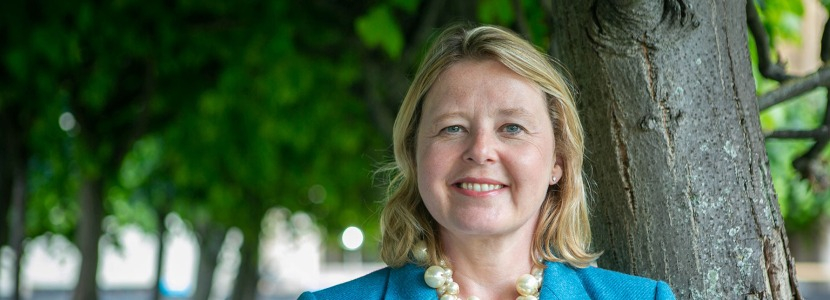
This article by Nickie Aiken MP, Sarah Champion MP and the International Rescue Committee UK first appeared in The Times Red Box on Monday, 15 August 2022. View the original article here.
Since the Taliban have took power in Afghanistan, almost one year ago today, our immediate fear was for Afghanistan’s women: fear for the loss of progress achieved over the last 20 years, fear for young girls’ futures and ambitious women’s careers, and fear of an increase in violence against women.
One year later, we are devastated that so many of these fears have been realised. The halting of development assistance, freezing of foreign reserves and grounding of the country’s banking system has sent the economy into freefall. Half the population in Afghanistan – over 24 million people – are in need of humanitarian assistance, 19 million of whom are going hungry. Women and girls are disproportionately affected by hunger, disproportionately impacted by job losses from the economic crisis, and up and down the country many young girls are suffering the awful realities of unimaginable choices made by impoverished families, including being sold into marriage.
At the same time, there has been a widespread backsliding of women’s and girls’ rights across the country, including shuttering girls’ secondary schools, enacting strict decrees on women’s dress and dictating male chaperones escort women in most public places. Restrictions on freedom of movement have left many women-owned businesses forcibly closed and seen tens of thousands of women who worked in government offices told to stay home since August last year.
Yet in the face of this crisis, the women of Afghanistan have shown incredible resilience and are determined to remain be as visible as they can. Civil society activist Negina Yari negotiating with Taliban authorities to allow her NGO to deliver food directly to women with her female staff, rather than delivering to men and hoping that the women would eventually receive the food is just one example.
There is still a huge need for women in many jobs, especially in healthcare. In deeply conservative or remote parts of the country, it’s necessary to have women healthcare professionals – midwives, doctors, nurses – in order for women to be treated. These brave women deserve our support, and we write today to demonstrate our solidarity with the women of Afghanistan and to call on the UK Government to fund and support local women-led organisations in the country.
The Taliban’s dismantling of government institutions such as the Ministry of Women’s Affairs and limited international support for women-led organisations since last year has left Afghan women with fewer sources of protection and advice. Local and women-led organisations are essential for bringing their contextual knowledge, skills, resources, and experiences to emergency preparedness, response, and resilience building and ensuring that women can access the humanitarian and public services they require. When female humanitarian workers are unable to work, women who need specific services like breastfeeding support or care are left unsupported. This could mean leaving domestic abuse victims and pregnant women without care. Research by the UN and the IRC found that 77% of women-led organisations have had no funding for their work this year.
The UK Government’s commitment to put women and girls at the heart of UK foreign policy is welcome, but we must define what this means in practice, and ensure our funding is reaching the women and girls who need it most. This means providing direct flexible funding to local, women-led organisations who are most able to meet needs, and ultimately to protect, empower and support women and girls.
Whoever the next Foreign Secretary is, we urge them to make the women and girls of Afghanistan a top priority, and to demonstrate this by publishing the long-awaited Women and Girls’ Strategy; detailing exactly how the women and girls’ aid budget will be restored and to who; and in due course, setting out a strategy for funding and working with women-led organisations around the world, but particularly in fragile and conflict affected countries like Afghanistan. It is only by funding those women who know their communities’ needs best that we can ensure the most vulnerable women benefit most from UK Aid, and so it is essential that we see a strong commitment to fund local and women-led civil society organisations.
Here in the UK, we may have differing opinions on some issues, but all parliamentarians are united in our unwavering support for the people, and particularly the women of Afghanistan. We must keep pushing for further action for ourselves and the international community to ensure our solidarity continues to be shown through our actions, not just our words.







